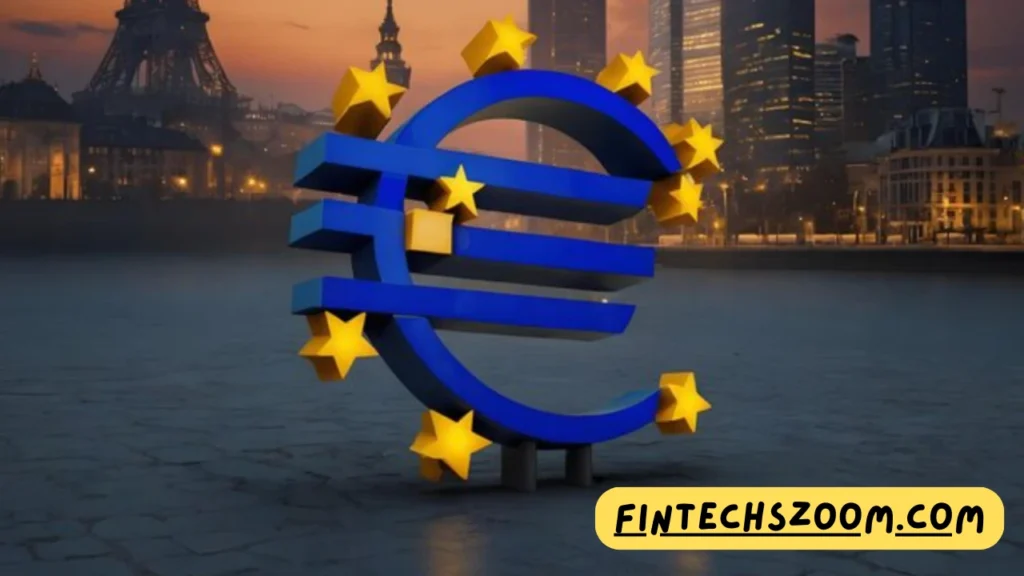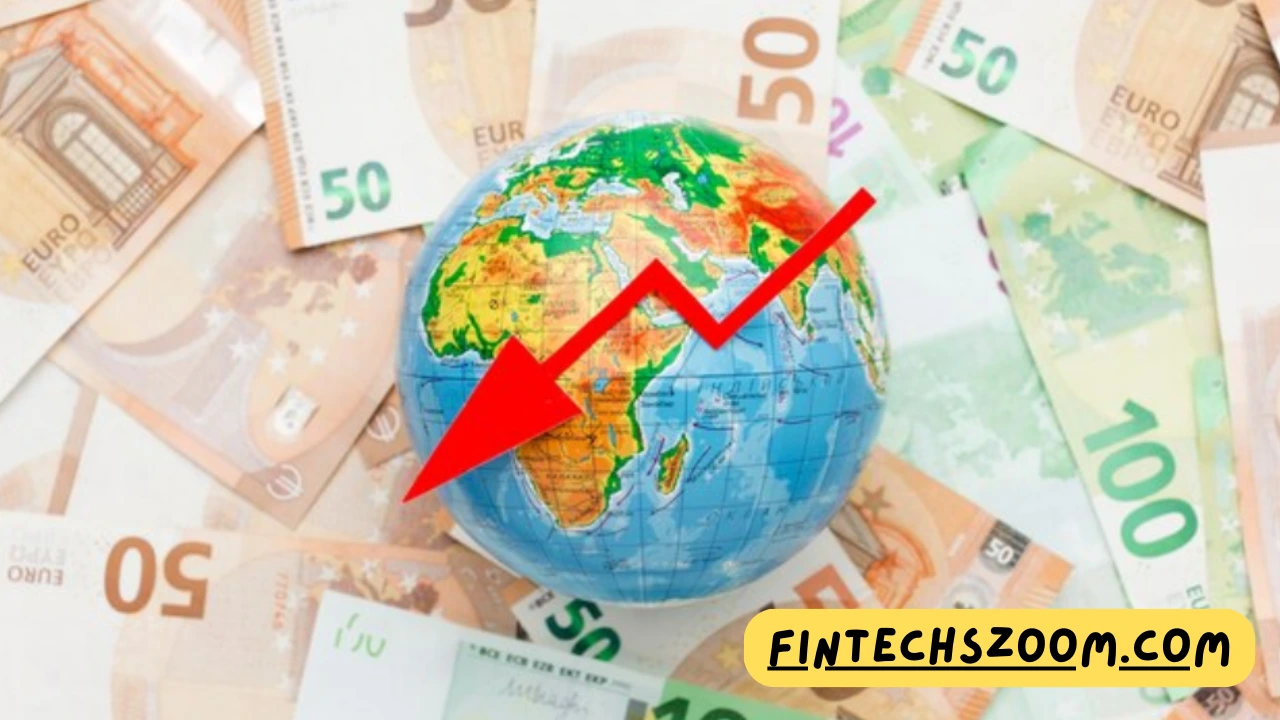Today, European business sectors have been encountering a blend of improvements. Local and global economic factors influence some exciting shifts in the FTSE 100. Outstandingly, organizations associated with Insurtech and Robo-consultants are driving the charge with advancements driving tremendous changes in their areas.
Moreover, there are areas of strength for reasonable money, with various FTSE 100 organizations effectively pushing for greener speculations. On the more extensive European front, stages like FintechZoom give standard updates on market records, such as the EURO STOXX 50, which are fundamental for understanding the ongoing venture scene.
These updates frequently include geopolitical events and economic indicators that influence market sentiment. Overall, investors are keeping a close eye on developments in technology-driven and more conventional European market sectors, indicating a day of cautious optimism.
Role Of FTSE 100 In European Markets
The FTSE 100, a benchmark record addressing the 100 most excellent organizations recorded on the London Stock Exchange, critically impacts the European monetary business sectors. Regardless of the UK’s departure from the EU, the record remains significantly interconnected with European economies. HSBC, BP, and AstraZeneca are just a few of the FTSE 100 companies with extensive operations throughout Europe and impact sectors like healthcare, energy, and the back.
As a result, European approaches and showcase conditions influence the FTSE 100’s execution, which frequently reflects broader European financial patterns—the record fills in as a critical pointer of financial backer presumption toward the UK economy. Changes inside the FTSE 100 can reflect more extensive European examiner assurance, especially inside the setting of money advancements. A more vulnerable English pound can make FTSE 100 stocks more charming to European financial backers and help interface the rundown to central area markets. Must Read About FintechZoom.com Nikkei 225 Today.
Additionally, the FTSE 100 plays a significant role in global and European portfolios after Brexit, highlighting the ongoing ties between the UK and European markets. Overall, the FTSE 100 might be a critical part of the European monetary scene, influencing and being impacted by monetary upgrades over the landmass.
Best Stocks In European Markets Today
Here is a table of some of the top-performing stocks in European markets as of September 2024:
| Stock | Sector | Market | Performance |
|---|---|---|---|
| SAP | Technology | Frankfurt (Germany) | Strong cloud computing focus, potential new all-time highs expected. |
| Siemens | Capital Goods | Frankfurt (Germany) | We are positioned well after a correction in 2023, with expected growth in infrastructure and automation. |
| AstraZeneca | Healthcare | London (UK) | Benefiting from solid demand for defensive healthcare stocks. |
| Novo Nordisk | Healthcare | Copenhagen (Denmark) | Continues strong performance driven by demand for healthcare. |
| Anheuser-Busch InBev | Consumer Goods | Euronext Brussels (Belgium) | Recent recovery after earlier dips in 2023. |
| LVMH | Luxury Goods | Paris (France) | It continues to thrive on the luxury market boom, especially in Asia. |
| Deutsche Bank | Finance | Frankfurt (Germany) | Recovery after several years, driven by solid earnings and cost discipline. |
| HSBC | Finance | London (UK) | Supported by expanding net interest income. |
Factors That Make the European Market Strong
- Diverse Economies
- Strong Industrial Base
- Global Trade Networks
- Stable Financial Systems
- Innovation and Technology
- Healthcare and Pharmaceuticals
- Sustainability Focus
- Monetary Policies
- Highly Skilled Workforce
- Strategic Geographical Location
The European market’s solidarity is established in its different economies, going from modern forces to be reckoned with like Germany to financial hubs like London and tech trailblazers in Scandinavia. Europe’s solid modern base, especially in assembly and auto areas, contributes to its economic strength.
The region’s robust global trade networks and strategic location facilitate trade within Europe and with vital global partners. Institutions like the European Central Bank ensure monetary stability throughout the Eurozone, making Europe’s financial systems one of the most stable in the world.
Another pillar of Europe’s market strength is innovation, with a particular emphasis on pharmaceuticals and technology. Leading their respective industries, Siemens, ASML, and AstraZeneca drive growth and competitiveness. Furthermore, with strategies that support green change, Europe’s obligation to manageability positions it as a forerunner in the worldwide shift toward sustainable power.
Finally, Europe’s profoundly gifted labour force, upheld by solid school systems, guarantees the district stays serious worldwide, drawing in venture and cultivating monetary development. Must Read About FintechZoom Richard Mille.
Is The European Market Safe For Investment?

Investing in the European market is considered moderately protected because of a few key elements. The district areas of strength flaunt structures, a stable monetary framework, and differentiated economies that decrease general risk.
Finance, healthcare, and technology are well-established industries that provide resilience even during economic downturns in nations like Germany, France, and the United Kingdom. Also, the European National Bank’s (ECB) financial approaches offer soundness, especially in the Eurozone, by keeping up with low expansion and supporting monetary development.
In addition, Europe’s obligation to manage and efficiently power energy changes presents long-term venture opportunities, especially in environmentally friendly power and electric vehicles. However, investors should be aware of potential risks like geopolitical uncertainty, varying economic performance across nations, and the effects of global events like inflation and energy crises.
Despite these obstacles, investors who want exposure to mature economies with solid governance and innovative sectors continue to find the European market appealing.
Factors To Consider Before Investment In the European Market
- Economic Stability
- Political Environment
- Currency Fluctuations
- Sector Performance
- Regulatory Framework
- Market Liquidity
- Geopolitical Risks
- Taxation Policies
- Interest Rates
- Diversification Opportunities
Evaluating the region’s financial strength is pivotal when considering interest in European business sectors. The wide range of economic growth, inflation, and unemployment rates among European nations can impact market performance.
The world of politics is one more basic variable, as political vulnerability or strategy changes, like those connected with the EU or Brexit, can prompt market unpredictability. Cash vacillations, especially the strength of the euro against other significant monetary standards, can influence returns, particularly for financial backers managing various monetary standards. Must Read About FintechZoom.com Top Stock Gainers Today.
Area execution likewise assumes a critical part, as businesses like money, energy, and innovation might perform contrastingly across different European nations. In Europe, regulatory frameworks can vary by country and industry, affecting how easy it is to do business and how profitable investments are.
Market liquidity is fundamental, as profoundly fluid business sectors take into account more straightforward resource trading. International dangers, including strains between nations or exchange questions, can significantly affect European business sectors. Tax collection approaches can influence speculation returns at the public and EU levels.
Last, interest rates set by national banks and the European Central Bank influence the attractiveness of investments and borrowing costs. Diversification opportunities across sectors and nations also provide a buffer against localized risks.
Benefits Of Investment In The European Market

- Diversification
- Economic Stability
- Access to Leading Sectors
- Strong Regulatory Framework
- Currency Hedging Opportunities
- Potential for High Returns
- Emerging Markets Access
Investing in European business sectors offers several advantages, beginning with broadening. Europe’s diverse range of economies, from modern forces to be reckoned with like Germany to financial centre points like the UK and Switzerland, permits financial investors to spread risk across various areas.
The locale’s economic strength, upheld by well-organized organizations and robust monetary strategies, provides a safe climate for ventures. Financial investors additionally gain access to driving areas, like luxury products, cars, and medical services, with organizations like LVMH, BMW, and AstraZeneca driving worldwide. Must Read About FintechZoom Costco Stock.
The European Union’s robust regulatory framework ensures investor safety and transparency, making it an appealing market for international investors. Cash-supporting open doors emerge from the assorted monetary forms utilized across Europe, permitting financial backers to oversee conversion scale chances.
Notwithstanding the adult idea of numerous European business sectors, there is critical potential for exceptional yields, particularly in areas like efficient power energy and innovation. Lastly, Europe offers admittance to developing business sectors, especially in Eastern Europe, where economies are proliferating and introducing extra learning experiences.
Risks Of Investment In The European Market
- Economic Uncertainty
- Political Instability
- Regulatory Risk
- Currency Fluctuations
- Sectoral Dependencies
- Interest Rate Changes
- Brexit Implications
- Geopolitical Tensions
Investing in the European market entails taking into account several risks. Financial vulnerability is essential, as the locale has confronted difficulties connected with slow development and inflationary tensions. Political instability, such as that brought on by-elections, populist movements, or disputes within the EU, can cause market volatility.
Administrative dangers are likewise critical, particularly as EU arrangements and guidelines can change across nations, unexpectedly influencing organizations. International investors risk having their returns affected by currency fluctuations, particularly those involving the euro and the pound sterling. Must Read About FintechZoom QQQ Stock.
Moreover, the European market is subject to specific areas, like money, cars, and energy, which can be defenceless against worldwide inventory network interruptions and mechanical changes. Interest rate changes can influence market dynamics, particularly those implemented by the European Central Bank, affecting borrowing costs and consumer spending.
Brexit has presented long-haul vulnerabilities concerning exchange relations and administrative arrangements between the UK and the EU, which continue to affect speculation systems. Ultimately, international pressures, whether inside Europe or including its associations with worldwide powers, can prompt market shakiness, further stressing the requirement for alert while putting resources into European business sectors.
Why do People Prefer the European Market For Investment?
- Economic Stability and Diversity
- Access to Leading Global Sectors
- Strong Regulatory Framework
- Sustainability and Innovation
- Geopolitical Stability
- Currency Hedging Opportunities
- Investment in Emerging Markets
- Strategic Location and Trade Networks
- Mature Financial Markets
- Attractive Yields
Europe offers a blend of dependability and development that requires financial investors. The region’s strong, diverse economies, such as those in Germany, France, and the UK, provide a stable investment environment.
Access to leading global industries like luxury goods, automotive, and pharmaceuticals also ensures growth opportunities. The European Association’s severe administrative structure cultivates straightforwardness and financial investors’ security, diminishing gambles.
Moreover, Europe is a forerunner in supportability, driving development in efficient power energy, and offers money supporting open doors because of its areas of strength for numerous. Must Read About FintechZoom Intel Stock.
The accessibility to emerging markets in Eastern Europe and the region’s geopolitical stability adds to its appeal. Europe’s essential area and mature monetary business sectors work with worldwide exchange and deal with alluring yields, making it a favoured decision for financial backers.
Conclusion
The European market presents a dynamic and versatile climate for financial investors, driven by its different economies, solid modern base, and obligation to development and maintainability. Despite the United Kingdom’s exit from the European Union, the FTSE 100 remains a significant player that reflects broader European trends.
While the district offers various benefits, including a stable monetary framework, driving worldwide areas, and solid administrative systems, financial backers should avoid likely dangers. Market performance can be impacted by economic uncertainty, political instability, and currency fluctuations, so sectoral dependencies and geopolitical tensions must be carefully considered.
Europe is an appealing option for those looking for a balance between growth and stability due to the opportunities for diversification, high returns, and access to emerging markets, particularly in green energy and technology.
Investors can mitigate risks and capitalize on the European market’s strengths by remaining informed and strategically navigating its unique obstacles. Europe remains a crucial and promising locale for both transient additions and long-haul speculations.
FAQs
What are the key trends driving European fintech in 2024?
Advancements in open finance, regulatory updates, and increased adoption of digital payment systems like VRP led to the fintech transformation.
Is investing in the European market safe post-Brexit?
Yes, Europe remains stable for investment with solid regulations, though risks like currency fluctuations and geopolitical issues persist.
Which sectors are most promising for investment in Europe in 2024?
Fintech, healthcare, sustainable energy, and technology are top sectors due to innovation and policy support.
What are the risks of investing in European fintech?
Economic uncertainty, political instability, and regulatory changes are vital risks alongside sector-specific vulnerabilities.
How are currency fluctuations affecting European investments in 2024?
Currency shifts, especially with the euro and pound, can impact returns, making hedging strategies necessary for managing risk.

